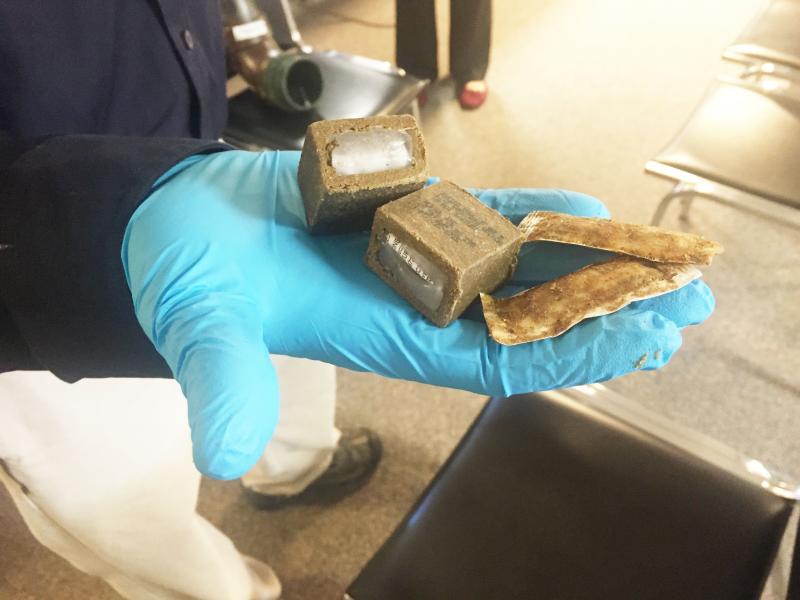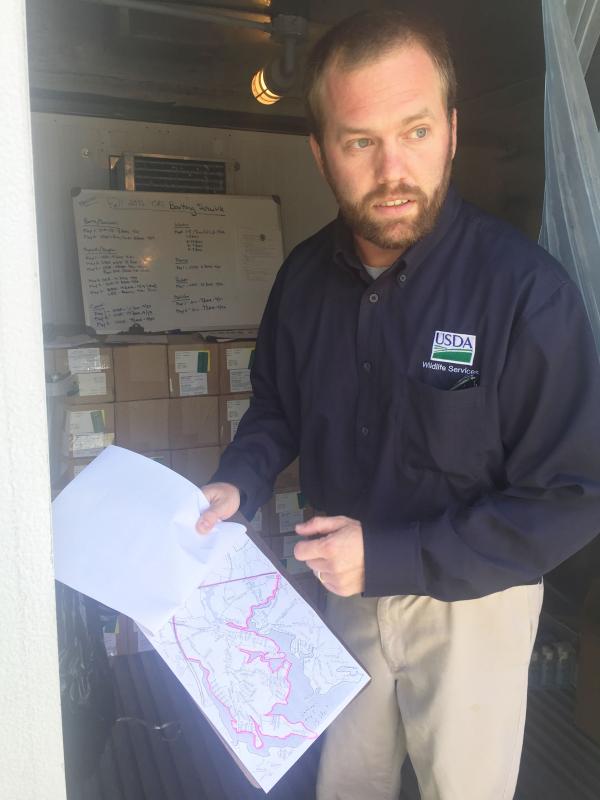Rabies vaccination program back for second round
In an effort to reduce the threat of rabies, federal and state officials hope wildlife in Wareham will take the bait.
Starting on Sept. 22, the Cape Cod Rabies Task Force will continue the Oral Rabies Vaccine Program by distributing 72,000 vaccinations, disguised as edible treats, across the South Coast.
Baits were also dropped in the area this April after a 13-year hiatus, said Brian Bjorklund, a wildlife biologist with the United States Department of Agriculture.
The task force is back in a bid to eliminate the rabies virus from Cape Cod and diminish its reach in the South Coast. Moving the program to the mainland is an attempt to create a larger buffer zone for Cape Cod while also providing vaccinations in more communities.
According to state and federal officials, out of 230 animals tested for the virus in Plymouth and Barnstable Counties since 2015, 40 were from the towns covered by the vaccination program. Of those animals, two raccoons with rabies were found in Wareham this February.
Bjorklund noted that the raccoons did not come in contact with people.
The rabies virus is carried in the saliva of infected animals. It spreads when an infected animal bites or comes in close contact with a human or another animal. The virus infects the central nervous system, ultimately causing an inflammation of the brain and then death.
The disease is treatable if a vaccine is administered soon after being exposed.
Residents should be on the look out for the baits, which will be dropped by hand and from vehicles as well as stocked in bait stations located in wooded areas. The baits are either small, brown cubes or brown strips and have a strong, fish odor.
State Public Health Veterinarian Dr. Catherine Brown said the baits pose no threats to humans or pets.
“The risk to humans is extraordinary low and we do this out of an abundance of caution,” she said. “With millions and millions of baits distributed in the U.S. there have only been two cases of people being affected."
If a person comes in contact with the liquid vaccine, which is encased in the bait, there’s a small chance of developing a rash.
Should someone come in contact with the vaccine, wash the area and call the Department of Public Health at 617-983-6800.
If anyone finds a bait sample, Bjorklund said it should be picked up using gloves and tossed into the woods or disposed of properly.
If a pet eats the bait, report it to the USDA Wildlife Services by calling 508-476-2956. While there is no danger to the animal, officials need to track how many baits are eaten by wildlife versus pets.
In addition to the hand distribution, 48 bait stations on the mainland will be stocked with bait samples.
Based on results from animals tested for the rabies vaccination this year, Bjorklund said the program resulted in a 50 percent increase in vaccination rates in some South Coast areas. That figure is much higher compared to similar programs across the country that usually see increases of 30 percent or less.
“We’ve had a very successful program,” he said.













